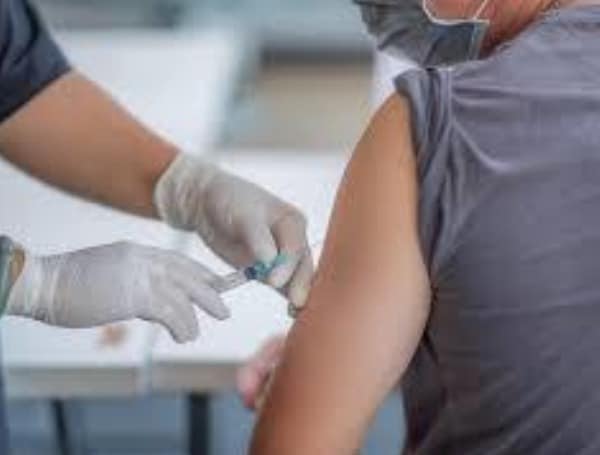A few days ago a tweet was making the rounds showing that Mississippi and Alabama had the lowest rates of COVID-19 vaccine acceptance in the nation.
The pro-vaxxers and pro-establishment types used the news as an opportunity to take a nasty swipe at public education on both states – suggesting the rubes were too dumb to see the efficacy of the shots.
But the debate over the vaxxing resistance, and the Biden administration’s ham-handed efforts to address it, by threatening to go door-to-door to distribute shots and alleging that “misinformation” about the shots on social media is “killing” people, have revived interest in an MIT study from a few months ago.
Back in March, MIT researchers released a study showing that “coronavirus skeptics have marshaled data visualizations online to argue against public health orthodoxy …” and that their arguments, as spelled out in graphics, were “often quite sophisticated, using datasets from official sources and state-of-the-art visualization methods.”
In other words, the skeptics looked at the same data and drew different conclusions, often just volleying back at the establishment followers a position they once held but later switched.
MIT researchers went by social media posts and discovered the “coronavirus skeptics often deploy counter-visualizations alongside the same ‘follow-the-science’ rhetoric as public health experts, yet the skeptics argue for radically different policies,” an MIT article about the study noted.
In this case, they looked at the arguments over the effectiveness of masking. And the posts from anti-maskers – again relying on the same data – were just as “sophisticated” and “polished” as those put out by government or pro-maskers.
Crystal Lee, the lead MIT scientist in the study, noted, “It shows that characterizing antimask groups as data-illiterate or not engaging with the data, is empirically false.”
“Their arguments are really quite nuanced,” she added.
Lee also noted that “anti-maskers see the pandemic differently, using data that is quite similar. I still think data analysis is important. But it’s certainly not the salve that I thought it was in terms of convincing people who believe that the scientific establishment is not trustworthy.”
Writing for National Review last week, columnist Michael Brendan Dougherty cited the MIT report and noted that, as the MIT researchers discovered, “a substantial portion of public-health skepticism was highly informed, scientifically literate, and sophisticated in the use of data.”
The problem is one that often emerges from Washington: that the snooty Beltway elites believe they know better than the rest of us – even as their story on COVID-19 has shifted and buckled multiple times over the past 16 months. (Just for starters, think of what we’ve learned about the lab-leak theory, Gov. Andrew Cuomo, the risk to the young and other treatments like hydroxychloroquine.)
“Proponents of the vaccine are unwilling or unable to understand the thinking of vaccine skeptics — or even admit that skeptics may be thinking at all,” Dougherty wrote. “Their attempts to answer skepticism or understand it end up poisoned by condescension, and end up reinforcing it.”
Dougherty notes that “reluctance” – as opposed to skepticism – is based on personal risk-benefit perceptions based on the available science about the threat based on age, health status, and population density. Information that public health authorities themselves have advocated at some point during the pandemic.
The problem confronting the pro-vaxxers is one of their own making. Think of it this way: We now have Vice President Kamala Harris telling us to get vaccinated, when less than a year ago she was publicly saying she wouldn’t trust the vaccine if former President Donald Trump said it was legit.
And, as Dougherty suggests, one sure way to ensure people who are apprehensive won’t come on board is to treat them as social lepers for merely harboring legitimate questions about how and why the pro-vaxxers could switch sides so easily.
Support journalism by clicking here to our gofundme or sign up for our free newsletter by clicking here
Android Users, Click Here To Download The Free Press App And Never Miss A Story. It’s Free And Coming To Apple Users Soon.
